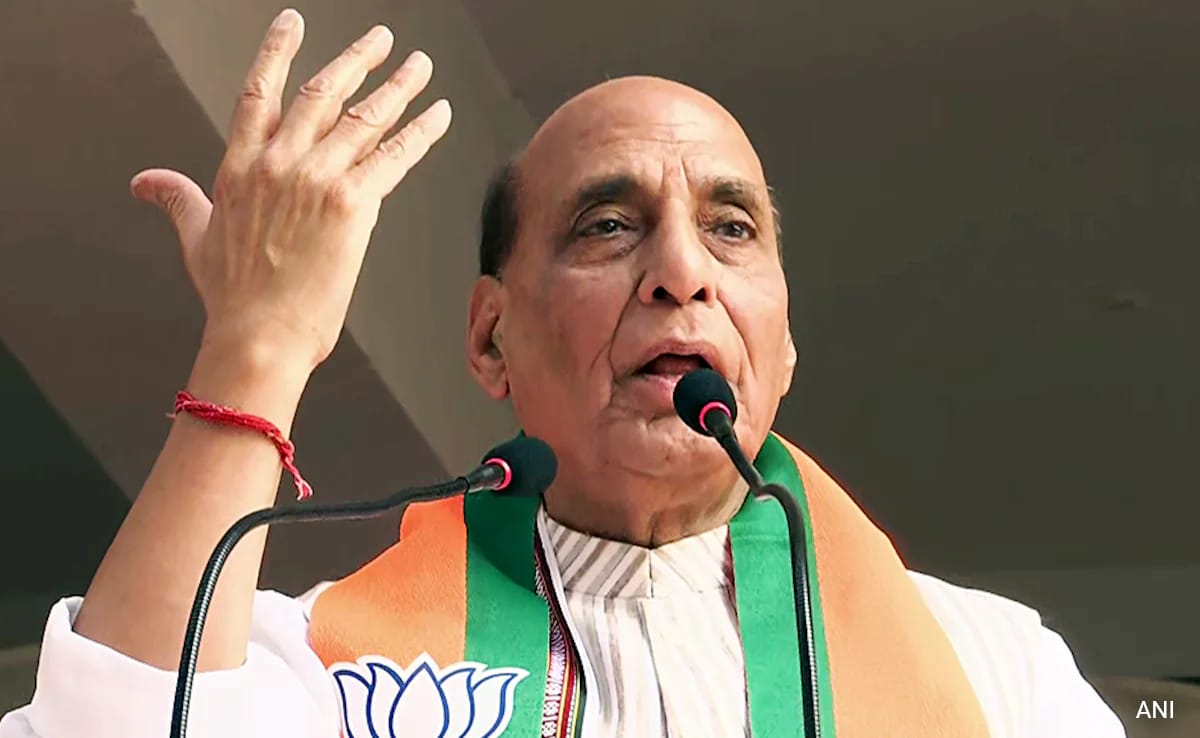The much-fabled power of New Hampshire’s fiercely independent voters wasn’t enough to break the spell Donald J. Trump has cast over the Republican Party.
Brushing aside Nikki Haley a little over a week after he steamrolled her and Ron DeSantis in Iowa, Mr. Trump became the first Republican presidential candidate who was not a White House incumbent to carry the nation’s first two contests. His winning margin of 11 percentage points in moderate New Hampshire demonstrated his ironclad control of the party’s hard-right base and set him on what could very well be a short march to the nomination.
For Ms. Haley, the former South Carolina governor, it was a disappointing finish in a state she had poured considerable resources into carrying. Her efforts to cobble together a coalition of independents and anti-Trump Republicans, with support from the state’s popular governor, were no match for Mr. Trump’s legions of loyalists.
Even though Ms. Haley is vowing to fight on, the difficult terrain ahead in South Carolina means that this first-in-the-nation primary could turn out to be the last.
Trump demonstrated his command of the G.O.P. in a purple state.
In 2016, Mr. Trump’s win in New Hampshire put him on a path to the nomination and ultimately the presidency.
Eight years later, the state delivered again for him.
He performed well across nearly every demographic group, according to exit polls. He won every age group, among men and women.
In the final days, Mr. Trump sought to project an air of inevitability, hoping to avoid a protracted and costly fight as he resists efforts to convict him in a criminal trial before Election Day in November.
His success in New Hampshire was likely to lead to more pressure on Ms. Haley to drop out from his Republican allies, who include senators, House members and governors.
He won more than 50 percent of the vote, although his margin of victory decreased significantly from the primary in 2016, when he won New Hampshire by about 20 points over a crowded field. And he fell far short of his 30-point triumph in this month’s Iowa caucuses.
He seemed visibly aware of that fact when he took the stage on Tuesday night, and signaled an uglier next phase.
Using an expletive as he repeatedly attacked Ms. Haley, he said, “I don’t get too angry — I get even.”
Haley has an incredibly rocky road ahead.
The contest now moves to South Carolina, the next competitive primary and one where Ms. Haley faces a steep uphill battle. Mr. Trump has led polls in her conservative home state by more than 30 points for months.
There’s little question that a defeat there for Ms. Haley would be devastating, making it difficult for her to justify carrying on in the race.
For Mr. Trump, drawing the contest to a close in South Carolina would allow his campaign to avoid the costly expense of Super Tuesday on March 5, when 16 states hold primary contests. He’s expected to unleash a barrage of harsh attacks, a tactic similar to the brutal campaign of humiliation he waged against Mr. DeSantis, who quit the contest on Sunday.
Already, Mr. Trump has argued that Ms. Haley is hurting the party’s chances in the fall by forcing him into an extended nominating contest.
“If she doesn’t drop out, we have to waste money instead of spending it on Biden, which is our focus,” he told Fox News shortly after the race was called.
The old guard of the G.O.P. is a dwindling faction.
Tuesday night’s results showed that the time is coming to sit shiva for the Republican Party of the Bushes, Cheneys and Romneys. And the donor class that once played an outsize role in shaping the party is now a desperate group of bystanders.
Ms. Haley ran on a traditional Republican platform, one that has faded during the Trump years. She campaigned on issues like reducing federal spending, enacting a staunchly interventionist foreign policy and overhauling programs like Social Security and Medicare.
Her candidacy was embraced by the pre-Trump G.O.P., as the gang got back together for one last shot at the interloper.
Traditional party donors from Wall Street, who loathe Mr. Trump, poured money into Ms. Haley’s super PAC. And in New Hampshire, she seemed to have a political environment more hospitable than in Iowa, with a voting base that is less religious and more educated.
But on Tuesday, New Hampshire Republicans rejected Ms. Haley and her attempt to revive the old guard.
Biden, Democratic grumbling aside, is cruising to renomination.
President Biden did not submit his name for the New Hampshire ballot, after the state refused to comply with a new Democratic nominating calendar that made South Carolina the first primary contest. Yet a scrappy write-in campaign run by the president’s allies delivered a victory for him nonetheless.
His most significant challenger — Representative Dean Phillips of Minnesota — was on track to capture little more than 20 percent of the vote. The self-help author Marianne Williamson, who mounted a second bid for the Democratic nomination, was far behind with just 5 percent.
Democrats have spent months pining for another option, raising worries about Mr. Biden’s age in polls, focus groups and even “Saturday Night Live” sketches. But these results underscore the reality of the Democratic nominating process: Mr. Biden faces no real opposition.
For years, many Democrats questioned whether Mr. Trump would complete his comeback and become the 2024 nominee. Now that he is ascendant, Mr. Biden and his party are turning their attention to the general election and preparing to transform the race into a debate over whether a polarizing and criminally indicted former president is fit to return to office.
Trump’s strength may not translate to the general election.
Despite his robust showing, the results offered warning signs for Mr. Trump ahead of November.
A significant slice of Ms. Haley’s support came from unaffiliated voters who wanted to send a message about stopping Mr. Trump — a reminder that he owns Republicans, but doesn’t own everybody else.
While Mr. Trump won the race, he failed to rack up the kind of numbers that would be expected of someone essentially running as an incumbent. He has been behaving as one as part of his strategy in battling the 91 criminal charges he is facing both in courts of law and courts of public opinion.
But only about half of those who voted in the New Hampshire primary said they would consider him fit for the presidency if he were convicted of a crime, according to CNN exit polling. Those who might not vote for him with a criminal conviction, assuming a trial takes place this year, remain a minority. But in a close fall campaign, such factors could matter.
On the flip side, the issues that exit polls suggested are driving a number of voters, including immigration, are ones that the Trump team expects to benefit him in a general election. And even with divisions within the Republican Party, the vast majority of its voters view someone wearing their partisan jersey as preferable to Mr. Biden.
Ruth Igielnik contributed reporting.
Follow us on Google news ,Twitter , and Join Whatsapp Group of thelocalreport.in
















